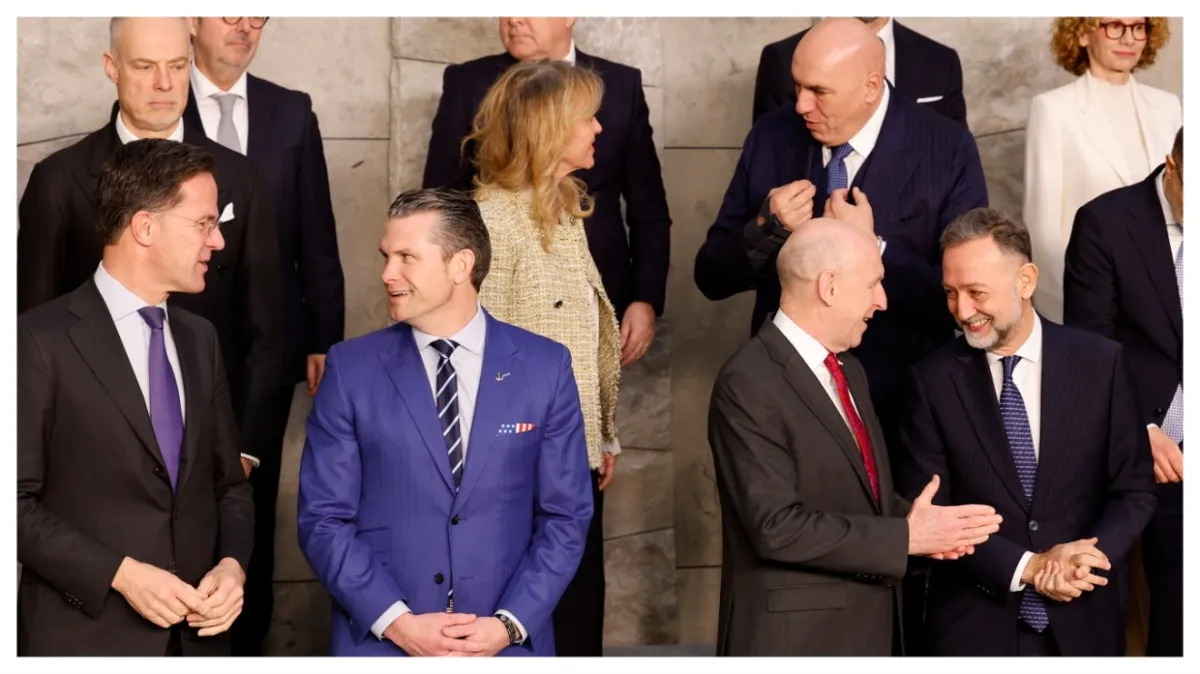
The recent revelation regarding the Trump administration's sharing of sensitive military information through the messaging app Signal has sent shockwaves through allied nations, significantly undermining trans-Atlantic trust. This breach was highlighted by group chat messages from top U.S. officials that expressed disdain for European nations perceived as “freeloading” on security. Craig Kafura, director of public opinion and foreign policy at the Chicago Council on Global Affairs, remarked, “I think every allied intelligence agency that read that article is probably having their own internal panic attack about what this implies,” in reference to a bombshell report published in The Atlantic.
The article by Editor-in-Chief Jeffrey Goldberg outlined how key Cabinet officials within the Trump administration utilized the open-source messaging app to discuss planned military actions against Houthi targets in Yemen. In addition to military strategy, these communications included derogatory comments regarding America's obligation to protect European economic and military interests. Kafura warned that such a major public scandal would likely shift public sentiment in Europe towards a more negative perception of the United States.
President Trump's controversial America First foreign policy has notably altered longstanding relationships, even with historically close allies. Canada's new Prime Minister stated that the traditional bond with the U.S. is “over,” reflecting the growing discontent. Issues such as trade wars and a hardline approach towards Russia in the ongoing Ukraine conflict have exacerbated tensions. Furthermore, foreign nationals have been affected by stringent domestic policies, further complicating international relations.
The Houthi attacks group chat incident, which Goldberg uncovered after being inadvertently included, has added a layer of incompetence to the existing concerns among foreign governments. A foreign diplomat in Washington, D.C., expressed disbelief at the situation, stating, “I wouldn’t use Signal to cheat on my wife.” He acknowledged that while mistakes can occur, the nature of this error was particularly troubling.
Dan Shapiro, who served as ambassador to Israel under President Obama, emphasized the necessity of transparency in maintaining trust among allies. “When there’s a breach, it’s crucial to share honestly with partners what happened, how it happened, and what steps are being taken to prevent its recurrence,” he stated. Such openness is vital for rebuilding confidence that can be damaged by incidents like these.
Despite the controversy, Trump and his allies have launched an aggressive defense against the credibility of Goldberg's report, claiming that the information shared was not classified and asserting that the military action taken proves no harm was done. Experts note that intelligence sharing between the U.S. and its allies is deeply ingrained within various levels of bureaucracy, suggesting that collaboration will likely continue despite the embarrassment caused by this incident.
However, there are significant concerns about the trustworthiness of the U.S. in diplomatic and intelligence circles, stemming from Trump’s handling of classified information and his relationships with autocratic leaders like Russian President Vladimir Putin. After Trump temporarily halted intelligence sharing with Ukraine, some NATO allies began to question their reliance on U.S. support, particularly regarding military equipment like the F-35 fighter jets.
A recent poll revealed that only 16 percent of Germans view the U.S. as a trustworthy partner, with three-quarters expressing doubts about NATO's reliability in the face of U.S. policy changes. Bradley Bowman, senior director at the Foundation for Defense of Democracies, warned that if allies do not trust the U.S. to handle sensitive information properly, they will be less inclined to share intelligence, ultimately putting Americans at greater risk.
Kafura pointed out that the fallout from this incident will force both European and Asian allies to reconsider their public friendliness towards the United States in the near future. Trump's antagonistic stance toward allies, including calls to annex Canada as the 51st state, coupled with harsh tariff policies, are straining relationships even among the Five Eyes intelligence-sharing partnership, which includes the U.S., Canada, New Zealand, Australia, and the United Kingdom.
Canadian Prime Minister Mark Carney addressed the situation, emphasizing the need for Canada to “look out for ourselves” as public sentiment towards Trump continues to sour. In the U.K., the head of the Liberal Democrats urged Prime Minister Keir Starmer to review the security of intelligence shared with the U.S., although Starmer has resisted calls to reduce intelligence collaboration.
Within the U.S., Trump's Republican allies have largely defended the actions of the Cabinet members involved in the Signal chat incident. However, some senior GOP lawmakers are calling for an investigation into the fallout. In contrast, Democrats have expressed outrage, demanding resignations from officials involved in the scandal.
As the implications of this intelligence sharing scandal continue to unfold, it underscores the fragility of international alliances and the importance of restoring trust among allies. The future of U.S. foreign relations may hinge on how effectively the administration addresses these significant concerns regarding security, transparency, and collaboration.